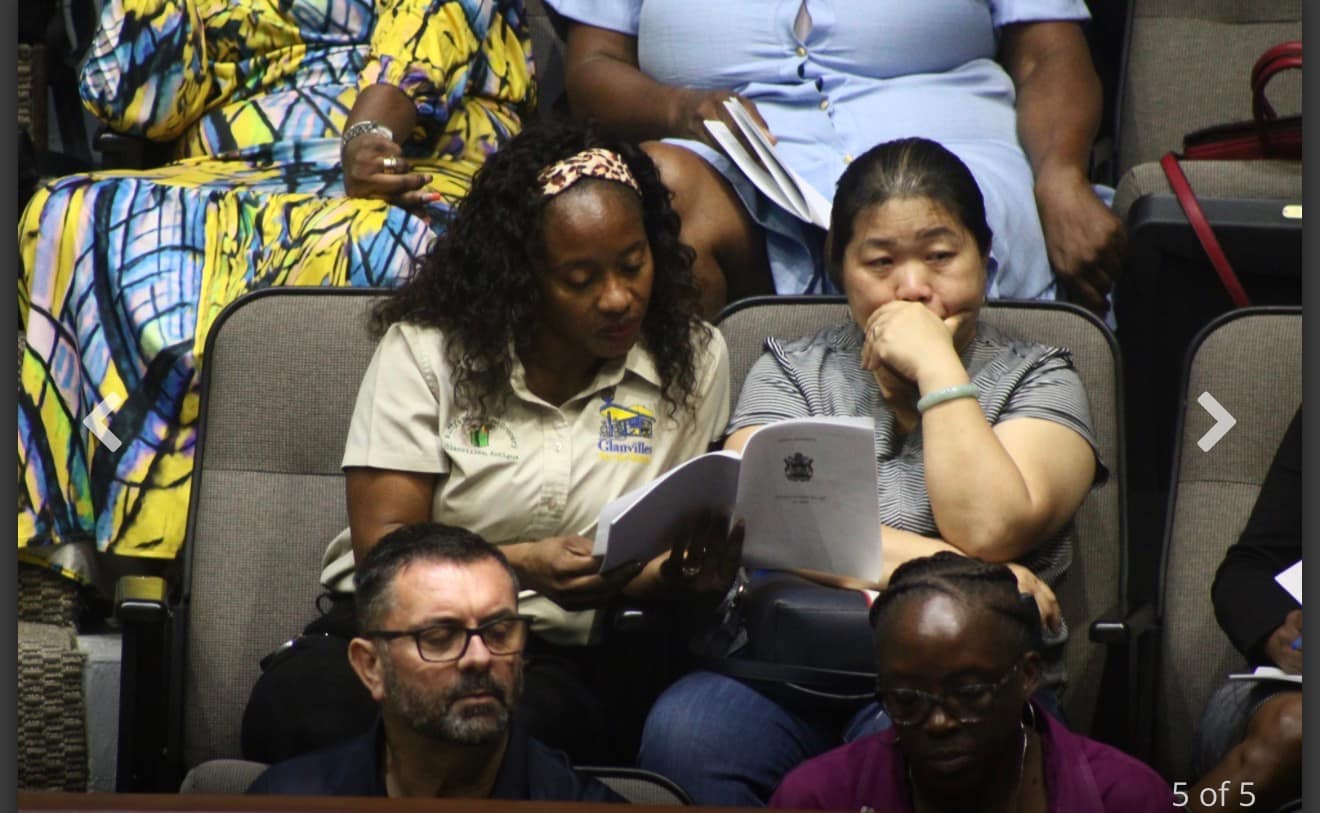

CLICK HERE TO JOIN OUR WHAT’S APP GROUP
Government Defends New Business Registration, Price Control Rules at Consultation
Government officials sought to reassure business owners that the proposed Price of Goods Bill 2026 is aimed at modernizing regulation and meeting international standards, not creating new taxes, during a multi-hour consultation this week.
Trade Minister E.P. Chet Greene told attendees that business licences under the new regime would carry no fees.

“I don’t want anybody leaving this room with the notion that tax is being created,” he said.
“This certificate will be totally free. The department will have to use the existing budget to provide the licences.”
Greene said mandatory registration is intended to strengthen traceability, support consumer protection and align with global obligations related to money laundering and product tracking.
“If we don’t have traceability in this system,” he said, “it means that a person is going to literally die before we get to know who the persons are trading in the particular commodity.”

Prices and Consumer Affairs Director Orin Steele outlined the bill’s approach to price controls, stressing that maximum price orders would apply only to goods designated by ministerial order.
He said market assessments must be completed before any controls are put in place and noted that prices could either be capped directly in emergencies or set through a formula tied to landed costs.
He pointed to eggs as an example, saying that during a scarcity, the minister could temporarily declare a maximum price based on farmers’ cost data.
Parliamentary Counsel Deniscia Thomas said the legislation also targets the country’s informal sector, which she described as unregulated and unaccounted for.
Comprehensive registration, she said, would support data collection, improve economic planning and help identify oversaturated or underdeveloped areas of commerce.
Greene said the measures are part of a wider effort to bring more order to commercial activity.
“We are just too loose,” he told participants. “We cannot continue this looseness and then expect to have the growth that we want to see.”
Stakeholders have until the end of December to submit written feedback. Officials said potential revisions could be made before the bill is brought to Parliament in early 2026.
CLICK HERE TO JOIN OUR WHAT’S APP GROUP
CLICK HERE TO JOIN OUR WHAT’S APP GROUP
CLICK HERE TO JOIN OUR WHAT’S APP GROUP
CLICK HERE TO JOIN OUR WHAT’S APP GROUP
CLICK HERE TO JOIN OUR WHAT’S APP GROUP
CLICK HERE TO JOIN OUR WHAT’S APP GROUP
CLICK HERE TO JOIN OUR WHAT’S APP GROUP
CLICK HERE TO JOIN OUR WHAT’S APP GROUP
CLICK HERE TO JOIN OUR WHAT’S APP GROUP
CLICK HERE TO JOIN OUR WHAT’S APP GROUP
CLICK HERE TO JOIN OUR WHAT’S APP GROUP
CLICK HERE TO JOIN OUR WHAT’S APP GROUP
CLICK HERE TO JOIN OUR WHAT’S APP GROUP
CLICK HERE TO JOIN OUR WHAT’S APP GROUP
CLICK HERE TO JOIN OUR WHAT’S APP GROUP
CLICK HERE TO JOIN OUR WHAT’S APP GROUP
CLICK HERE TO JOIN OUR WHAT’S APP GROUP
Advertise with the mоѕt vіѕіtеd nеwѕ ѕіtе іn Antigua!
We offer fully customizable and flexible digital marketing packages.
Contact us at [email protected]














I’ve been tricked many time with price of the goods on the shelf. Sometimes I just accept it but other times I leave the goods on the counter. The pricing on the shelves is not always clear. You do not really know which product it is referring to. E.g. Olive Oil. Could be referring to a normal Olive Oil or a Virgin Olive Oil. And then you need to look at the size as well. 500ML or 1Ltr. Bit many products are not properly priced. And sometime ago I realized Epicurean did away with the Price Check monitors they had. So now you can only find out the price when you are at the counter. There must be another way to not mislead customers when pricing the goods. Perhaps they need to invest in an App for the store. One that only works when you sign in on their network in the store.
Comments are closed.